【新唐人2011年11月19日訊】「佔領華爾街」已經持續了超過2個月,這場民間自發的草根運動既沒有組織領導者,也沒有明確的目標和綱領。中共媒體宣傳稱,「佔領華爾街」敲響了資本主義的喪鐘。國際知名學者對此駁斥,指出這場運動反對的是華爾街具有社會主義性質的分贓制度。
11月17號「佔領華爾街」屆滿2個月,全美各地抗議者發起「全球行動日」大規模示威,至少300人被拘捕。紐約、洛杉磯、華盛頓、波士頓、達拉斯、拉斯維加斯、波特蘭等地持續爆發示威活動,目前已有100多個國家響應「佔領」行動。
紐約州立大學教授謝選駿接受《新唐人》採訪,表達了他的看法。
謝選駿:「我覺得『佔領華爾街』的運動和中國的上訪運動有相似的地方,他們都是弱勢團體。他們得到的社會公眾的反應是不一樣的,比方說在中國,上訪的人很難得到體制內的人士、尤其是比較上層的人士公開的支持;但是在美國,『佔領華爾街』運動甚至還得到國會議員、總統和市議員等等這些比較重量級的人的支持。」
示威者高呼「我們是99%」、「銀行被保釋,我們被出賣」等口號,由於美國工會和左翼團體及人士的加入,一些口號帶有左翼色彩。
中共《人民網》評論,這場運動盲目反對資本主義、鼓吹新自由主義。《光明網》評論更直接的說,這股怒潮,劍鋒直指資本主義制度,要求建立「社會主義的美國」。
謝選駿:「不是『佔領華爾街』的運動在要求建立『社會主義的美國』,而是『佔領華爾街』的運動要求停止建立『社會主義的美國』。」
旅美學者謝選駿,中國社科院研究生畢業,是央視大型記錄片《河殤》的獨立撰稿人,六四事件後,《河殤》遭禁播,並被定性為「反革命的藍圖」。
謝選駿日前發表文章說,暢銷書《黑天鵝效應》的作者塔勒布(Nassim Nicholas Taleb)建議,華爾街銀行為追求高分紅,罔顧社會整體利益,追求高風險投資,唯一的解決之道就是取消銀行界的「分紅制度」。
謝選駿:「華爾街在2008年金融危機以後,它的性質改變了,因為他們等於就是說,他們盈利就歸他們自己,但是他們的虧損就由納稅人、由政府來出這個錢,所以這就違反了資本主義制度的一個基本原則,就是權利和義務的對等,就向社會主義靠攏了。」
英國《金融時報》專欄作家約翰.凱(John Kay)說,資本主義並非「貪婪」的代名詞。謝選駿指出,資本主義的代名詞是企業家精神,社會主義才是「貪婪」的代名詞。他說,華爾街投資銀行界2010年的滴血紅利,在經濟前景不明中卻創下歷史新高。這種「穩賺不賠」的分紅制度就是金融危機的罪惡源頭。
塔勒布對此強調,「這違反亞當.斯密的資本主義基本原則。」資本主義也被稱為自由市場經濟或自由企業經濟,特色就是由市場機制來自動調節經濟活動,而不是由國家操控。
謝選駿:「但是,美國政府現在做不到這一點,它只能給大企業支持,而不能夠向大企業收稅,就變成這麼一個問題,所以這些大企業正在實際上變成一種變相的國有企業,這就是我說的美國的社會主義傾向。實際上,壟斷資本主義就是社會主義。」
謝選駿教授表示,號稱資本主義像徵的華爾街,必須取消「賭贏了自己拿錢,賭輸了國債出錢」這一社會主義的分贓制度,否則,不僅自由已死、民主必亡;而且,美國遲早也會像歐洲國家那樣陷入國家破產的窘況。社會主義不能救中國,也肯定救不了美國。
也有分析指出,不僅是華爾街,歐美國家的高社會福利、高稅收等制度,以及政府干預經濟活動,都具有社會主義的性質。
新唐人記者常春、李元翰、孫寧採訪報導。
Scholar Critical of Wall Street Socialist Policy during Occupy protests
The campaign of "Occupying Wall Street" has lasted for
more than two months.
This spontaneous grass-roots movement has neither an
organizing leader, nor clear objectives and platforms.
Chinese Communist Party (CCP)'media said that
“Occupying Wall Street” sounded the knell of capitalism.
Internationally renowned scholars refute this, however,
pointing out that what is opposed in the campaign is the
socialist policy of distributing spoils from Wall Street.
November 17, marks two months for "Occupying Wall Street".
Protesters all over America launched a mass demonstration
called "Global Action Day". At least 300 persons were arrested.
New York, Los Angeles, Washington DC, Boston, Dallas,
Las Vegas, Portland and other places saw continuous break outs in demonstrations.
At present, there are more than 100 countries respond in
the “occupying” action.
New York University Professor Xie Xuanjun expressed
his views in an interview with NTDTV.
Xie Xuanjun: "I think the campaign of "Occupying Wall Street"
is similar to the petition campaign in China.
They are all disadvantaged groups.
What they get from the public reaction is different.
For example in China, the petition is hard to get open support
from persons in the system, especially from the upper levels.
But in America, the campaign of “Occupying Wall Street”
even gets support from heavyweight persons,
such as members of Congress, the President,
members of City Council and so on.
The protesters shouted such slogans as “We are the 99%”,
“Banks are released on bail, we are sold out” and so on.
Because the U.S. trade unions and left-wing groups and
individuals joined, some slogans contained the colors of left-wing.
CCP's “People” commented that this campaign blindly
opposes capitalism, and advocates neo-liberalism.
"Guangming" commented directly that this wave
of anger pointed straightly to capitalism system, requiring establishment of “socialist America”.
Xie Xuanjun: “The campaign of 'Occupying Wall Street'
is not to require establishment of 'socialist America',
but to require stopping establishment of 'socialist America'.”
Scholar Xie Xuanjun lives in America, and graduated
from Chinese Academy of Social Sciences.
He was an independent writer of a large-scale
CCTV documentary "River Elegy".
After June 4th incident, "River Elegy" was banned,
and was characterized as "counter-revolutionary blueprint".
Xie Xuanjun recently published an article,
and said that Nassim Nicholas Taleb,
the author of the best-selling book
"Black Swan Effect", gave some suggestions.
Because Wall Street banks pursue high dividends,
ignoring the whole interests of society and pursuing high-risk investments,
the only way to deal with the problem is to cancel
the banking sector's "bonus system".
Xie Xuanjun: "The nature of Wall Street changed after the
financial crisis in 2008, because it's equal to say that the profits belong to themselves.
But their loss will be paid by the taxpayer and the government.
So it violates a basic principle of capitalism,
namely the reciprocity of rights and obligations. It moves closer to socialism.”
British "Financial Times" columnist John Kay said that
capitalism is not the synonym of “greed”.
Xie Xuanjun pointed out the synonym of capitalism
is the spirit of entrepreneurs.
But socialism is the synonym of “greed”.
He said that the bonus of Wall Street investment banking
in 2010 hit a record high under the uncertainty of future economy.
This bonus system, with only earning, but no loss,
is the evil source of the financial crisis.
Regarding this, Taleb stressed that “this violates
Adam Smith's basic principles of capitalism”.
Capitalism is also called a free market economy or
free enterprise economy.
Its characteristic is to automatically regulate economic activities
by the market mechanism, but not by state control.
Xie Xuanjun: “But America cannot do this to such an extent
right now.
It can only give support to large companies,
but cannot levy taxes from large companies. It becomes such a problem.
So these large companies are actually becoming
state-owned enterprises in a disguised form.
This is what I said about America's tendency to socialism.
In fact, monopoly capitalism is socialism.”
Professor Xie Xuanjun said that Wall Street, known as a
symbol of capitalism, must cancel the spoils system of socialism,
in which individuals earn money when winning and
the state pay the losses when losing.
Otherwise, it will result in not only the death of freedom
and democracy, but also America will sooner or later fall into national bankruptcy like European countries.
Socialism can save neither China, nor America.
Some analysts also point out that not only Wall Street,
but also European and American countries' high social welfare,
high taxes and other government intervention in
economic activities all contain the nature of socialism.
NTD reporters Chang Chun, Li Yuanhan and Sun Ning
看下一集
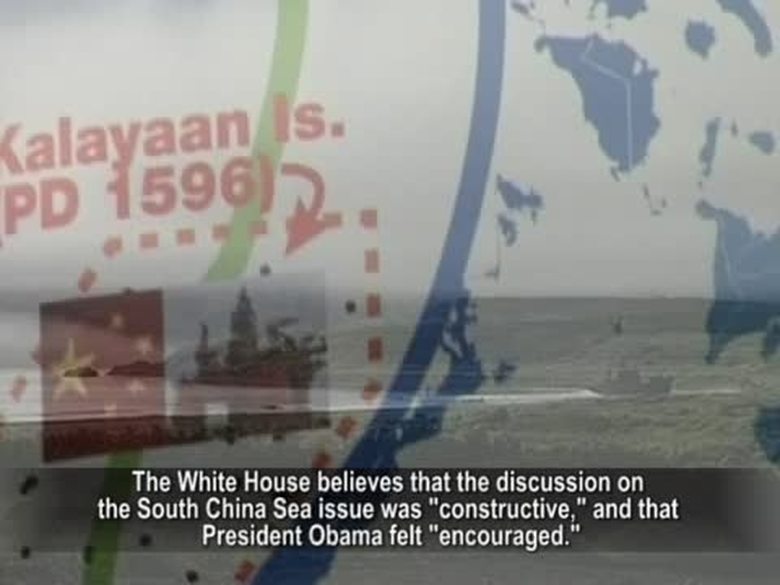
【禁聞】奧溫交鋒南海與匯率 中美對抗加劇
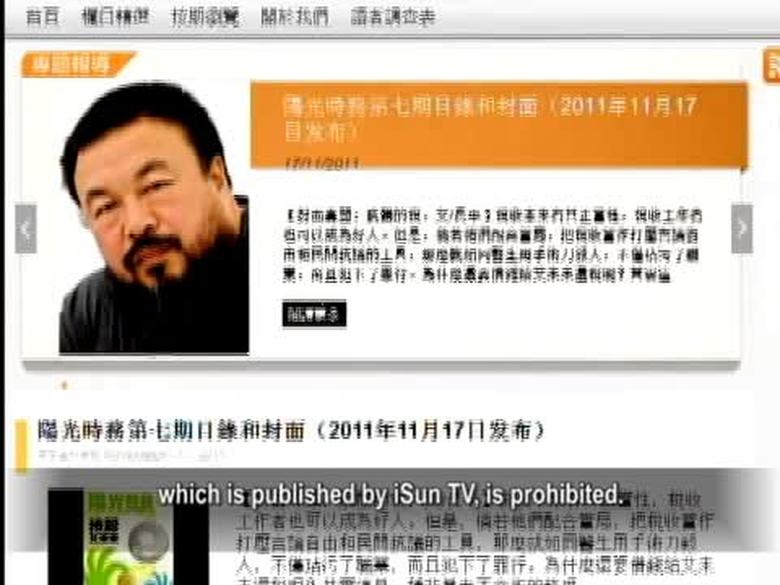
【禁聞】封殺《陽光時務》 中共不容真話

【禁聞】世衛:中國假藥 世界第一
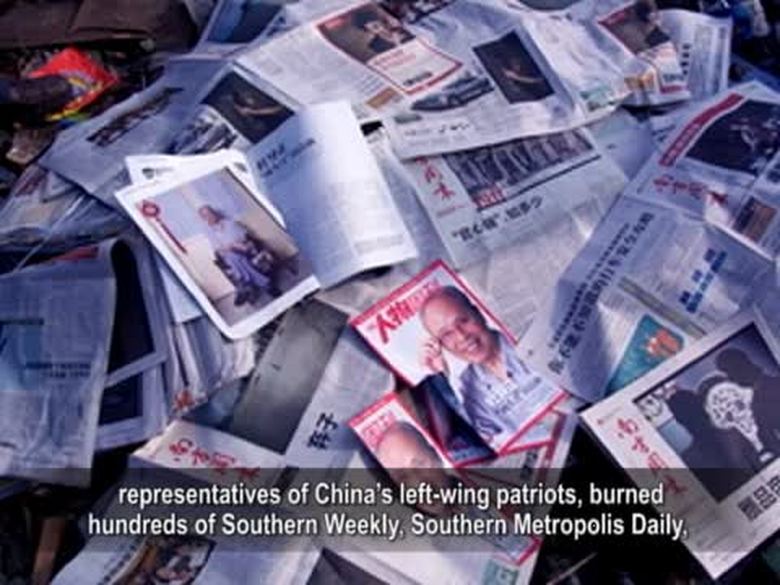
【禁聞】左派焚南方報系 引爆左右之爭
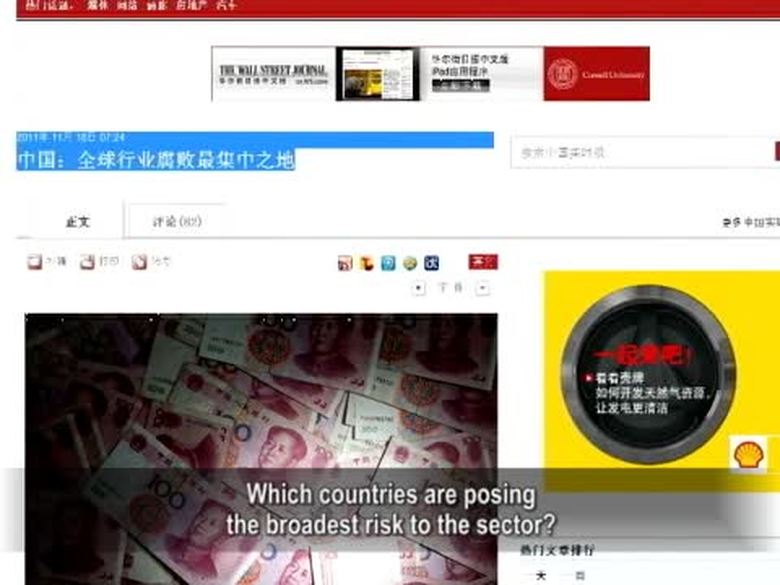
【禁聞】外媒:中共腐敗 製造業損失最大

【禁聞】寄不出的思念
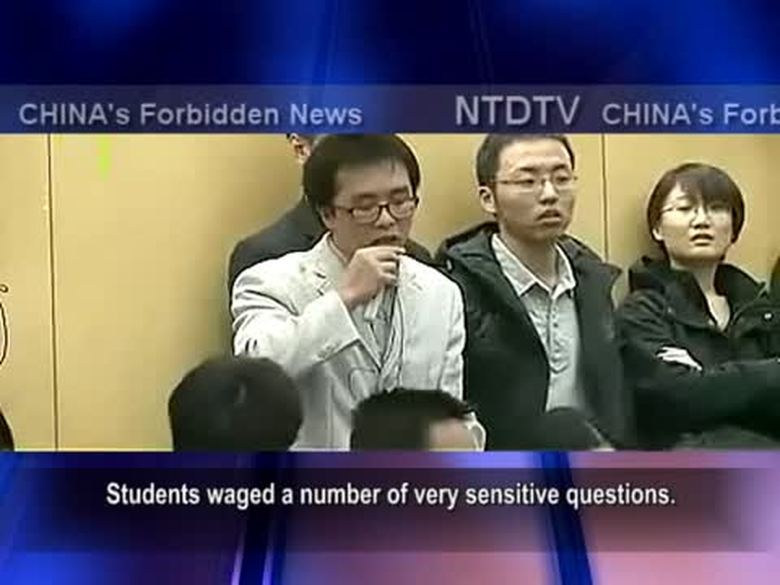
【禁聞】司馬南遭尖銳提問 呵斥學生閉嘴
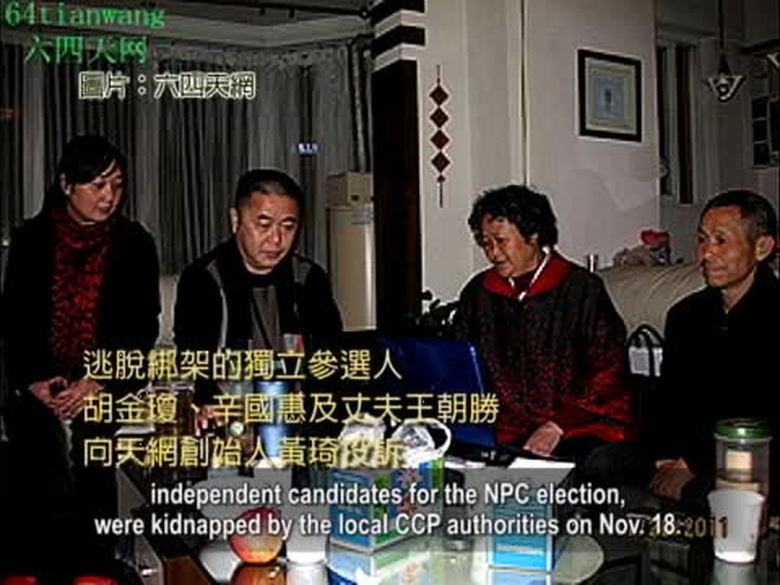
【禁聞】醜聞頻出 人大換屆選舉遭棄權惡搞
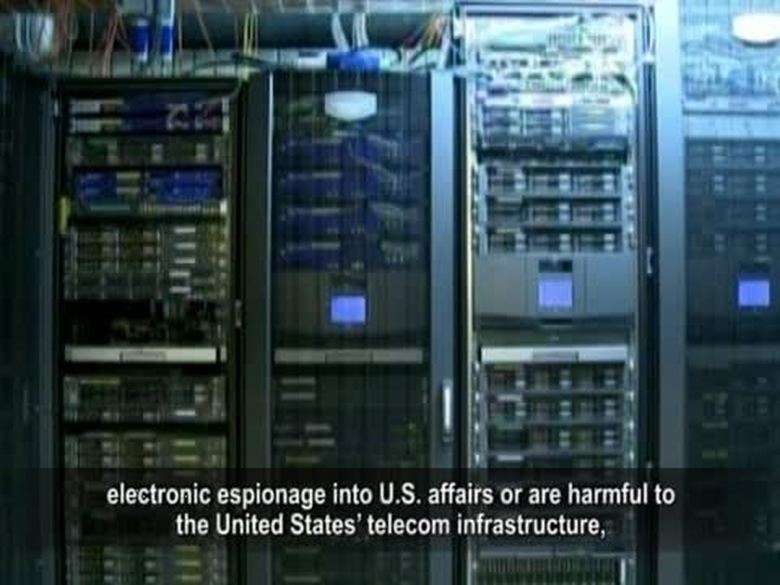
【禁聞】美國國會關注中國電訊企業擴張

【禁聞】中國退房潮蔓延 民怨蒸騰
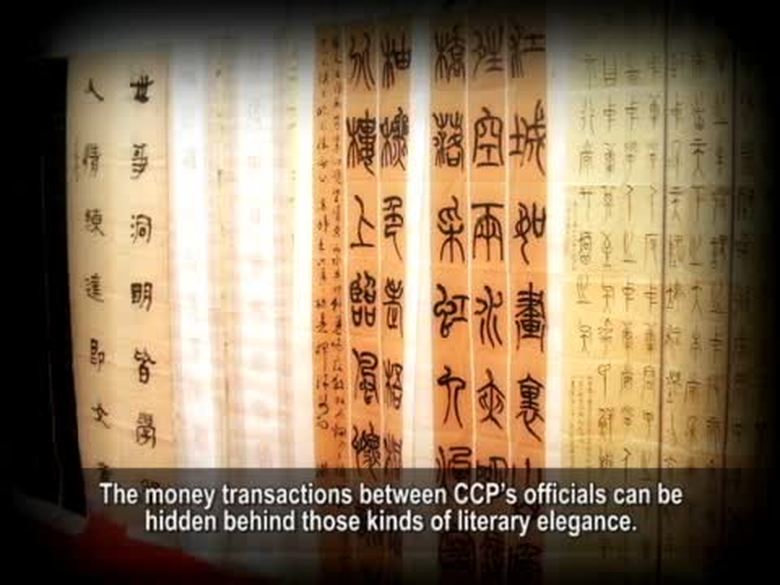
【禁聞】中共貪官興雅賄 名師字畫成新寵
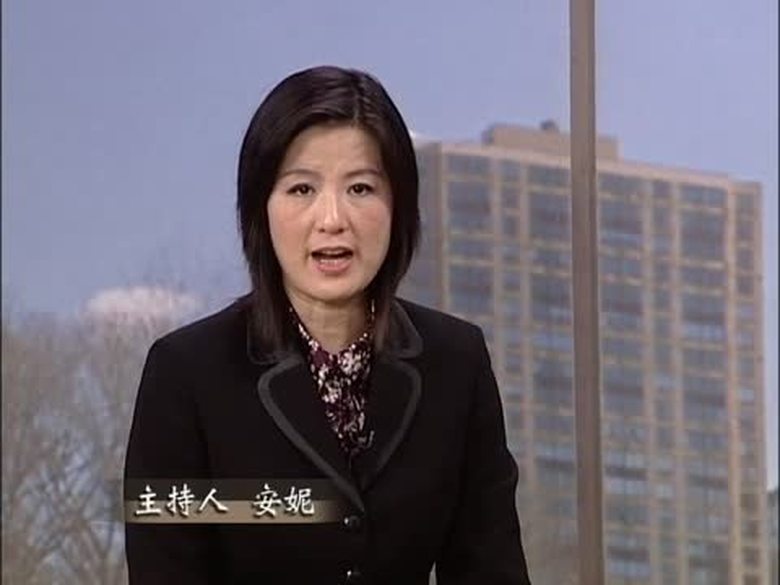
【禁聞論壇】中共修改“兵役法”為了甚麼?
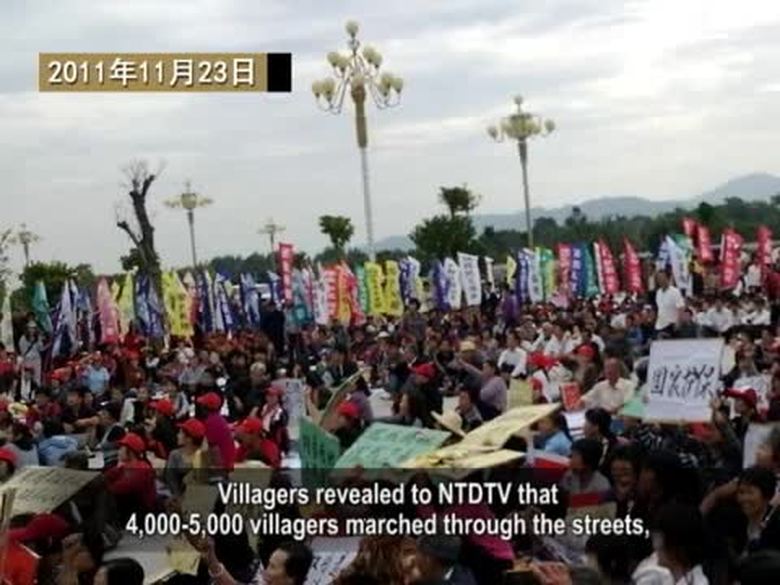
【禁聞】官方報導造假 烏坎村民持續抗議
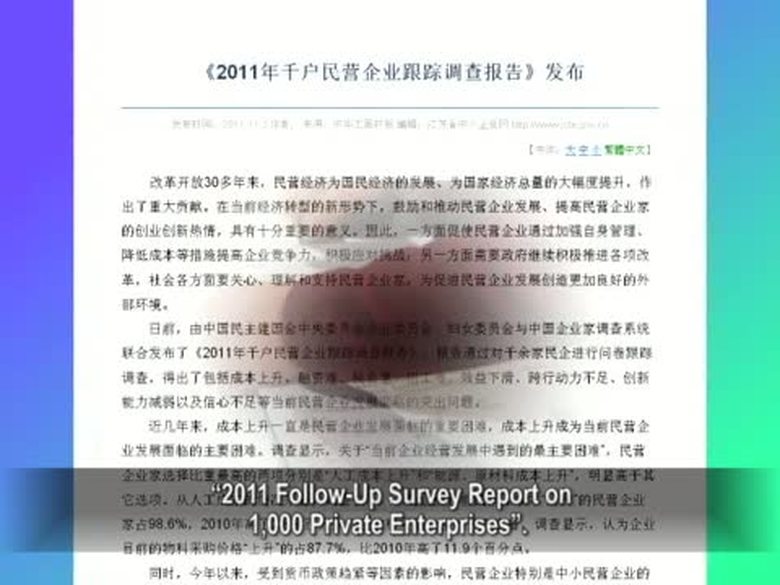
【禁聞】 民企前景堪憂 逾八成指稅重

【禁聞 】韓國逮捕器官中介 中共活摘遭譴責
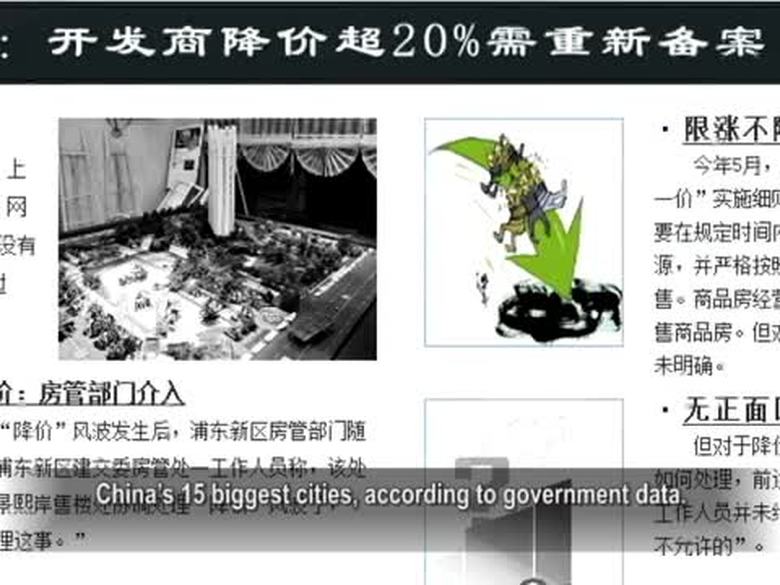
【禁聞】大城市房產交易量大降 波及產業鏈








